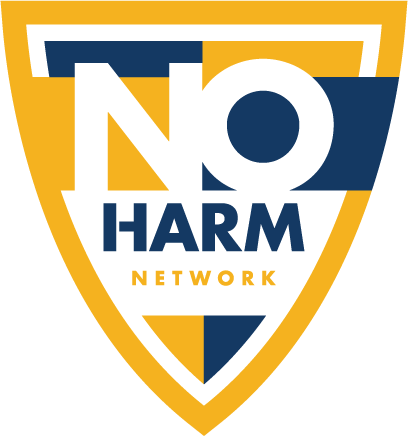Overrepresentation: How Society’s Social Ills Affect Black Women and Girls Differently
/Written By: NFNL CEO, Bianca Davis
Black History Month 2023 is now in the books, which on its surface means that we have once again checked the boxes for the year. Educational events? Check. Reflective conversations? Check. Award ceremonies? Check. While there is indeed imperative value in recognizing Black American history and achievements, being Black in America too often means being overrepresented in some of the most devastating social issues and cycles - whether it be intimate partner homicide, pregnancy mortality, or living in the foster care system.
At New Friends New Life, (NFNL) we too witness this overrepresentation when it comes to the issue of sex trafficking. In 2022, 48% of our adult program members were Black women. In our Youth Resource Center, which serves female youth ages 12-22, 43% of our members are Black girls. These numbers align with national data that shows that 40% of trafficking victims in the U.S. are Black women and girls, despite making up less than 14% of the population. Overrepresentation.
Anecdotally, I’ve long believed that many Black women are in a fight that we aren’t actively or consciously fighting – it’s just a part of what it means to survive and thrive in this skin we’re in. Now, there’s a term that describes the detrimental effects this never-ending fight has on Black women’s bodies – it’s called weathering. This wearing down of the physical body is a result of chronic stressors that are at the very root of Black American history and its trauma. It comes as no surprise then, that 60% of the women at NFNL also have a medical health condition (diabetes, high blood pressure, cancer, arthritis, etc.), in addition to the complex emotional trauma they carry, often stemming from their childhood, and further exacerbated by being a trafficking victim. I once heard a survivor say – “by the time a woman is trafficked, that’s not the first bad thing that has happened to her.” It is with trauma on top of trauma that Black women are trying to navigate and heal. Overrepresentation.
As a Black, Female, Immigrant, I have spent my life ripping off labels of libel and climbing out of the buckets of confinement. I recognize the privilege it has been for me to have made a life for myself here in the United States. I am grateful for the long list of allies and friends who have opened doors for me to walk through in different seasons. Today, I am humbled to be able to dedicate my professional life to sounding the alarm on behalf of women and girls who are in harm’s way. I know full well that there, but for the grace of God, go I.
Not long ago, I arrived at our facility ready to start my day, and I noticed one of our members sitting on the steps enjoying the morning breeze. I was immediately attracted to her big, bold earrings, so we struck up a conversation about jewelry and fashion. Then, I asked how long she had been with us. She shared that she had just moved here from Nevada, after leaving a life of being bought and sold for nearly a decade. She said she was enjoying the program so far, and then asked, “what do you do here?” When I told her I was the CEO, she stood up with tears in her eyes, gave me the biggest hug, and said, “I never imagined that someone who ran a place like this would ever look like me.” In that moment, oppressive overrepresentation shifted to restorative representation. I will never forget that embrace. She didn’t say much else, but I felt every single word.
While we know that anyone can be a victim of sex trafficking, and that New Friends New Life is proud to be in its 25th year of serving women and girls of all backgrounds and races who have been trafficked and exploited, it is imperative that we acknowledge all the ways in which Black women and girls, who are overrepresented in this issue, are uniquely and disproportionately at risk. It is only then that we can begin to level the disparities and clear the path forward for survivors.









